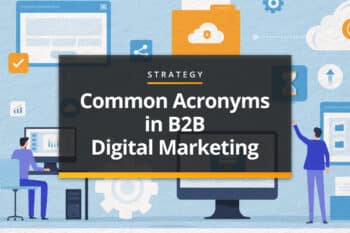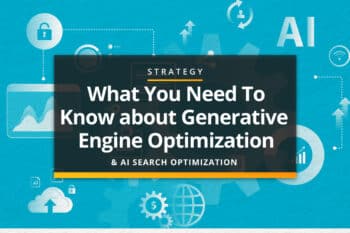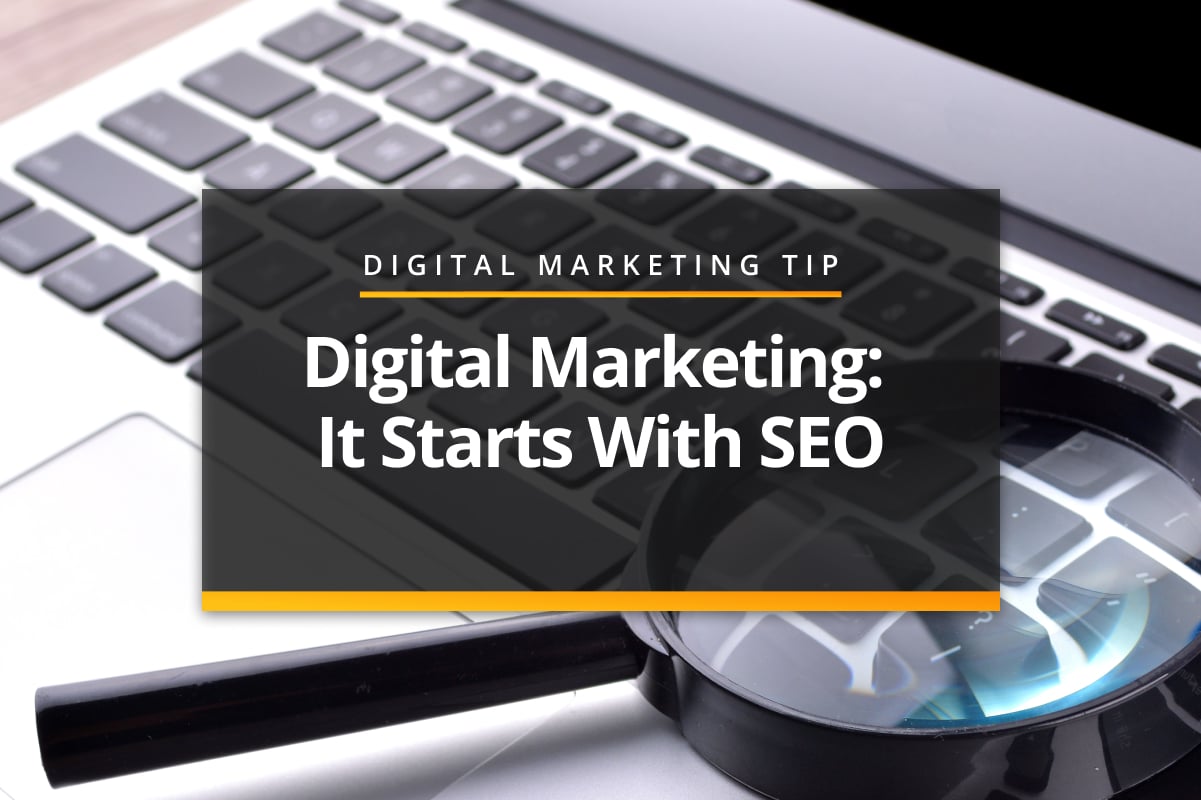
When we think about effective marketing, our minds are often drawn to a funny Super Bowl commercial or a clever meme being used for advertising by a company. This kind of marketing sticks out to us as it’s often designed to visually and emotionally connect with us so that we remember their brand and what they offer. This kind of marketing is often effective in its goal to create brand awareness, but it should be just the tip of the iceberg of a marketing plan. Even with a multi-million dollar marketing budget, if you are not building a solid digital marketing strategy for all your other outward-facing marketing efforts to rely on, then you might find that you just wasted hundreds of hours and thousands of dollars on an inefficient and ineffective marketing push.
Digital marketing is what will bridge the gap between outbound marketing and inbound conversions. Consider the Super Bowl example—you can spend millions of dollars for a 30-second spot on one of the largest marketing opportunities in the world, advertising your truly life-altering product or service—but if your company doesn’t have a strong online marketing plan, then your potential customers may not even be able to find you online to purchase your product or service.
Even if you never take out a Super Bowl ad, it is still vital that you consider your digital marketing plan before venturing into outward marketing. Digital marketing is a large topic, but there are a few simple yet vital components to an effective digital marketing plan, and it starts with SEO.
What Is SEO and Why Should You Care?
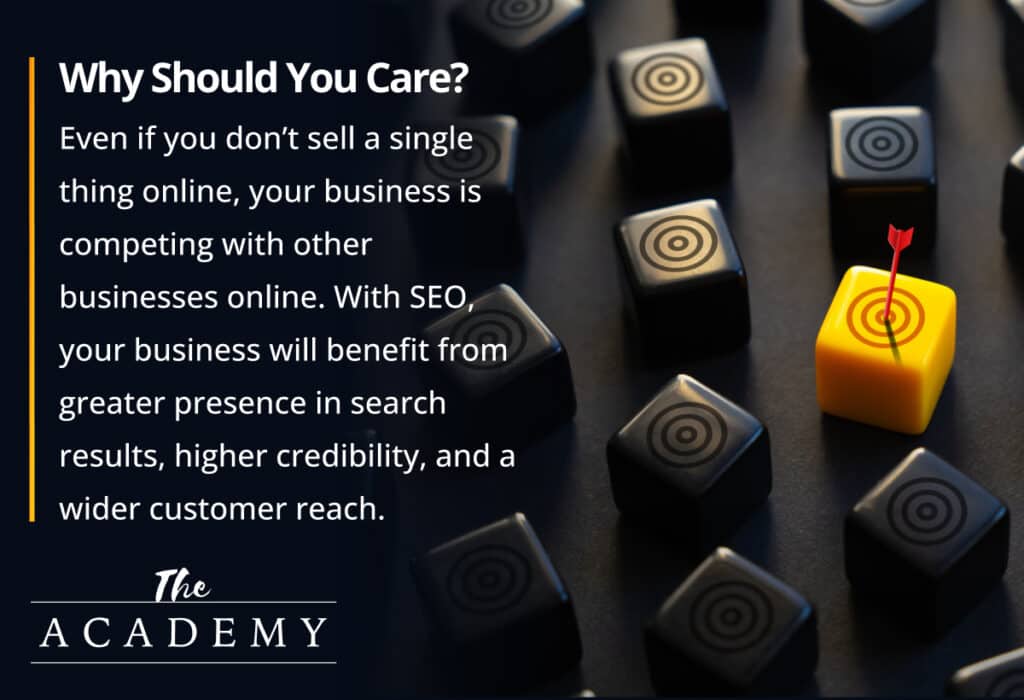
SEO (Search Engine Optimization) is essentially a process of using many different tools and techniques to make your website—and by extension, your business—more visible in search results and in the real world. With so much of the world being online today, this is no longer just a necessity for online marketplaces. Even if you don’t sell a single thing online, whether you know it or not, your business is competing with other businesses online.
For example, if you are a pizza restaurant, you may think that traditional marketing is enough and forego any real, meaningful digital presence. However, your competitor right down the road does not make this mistake and implements a digital marketing plan to stand out online. This results in your competitor getting more business because their restaurant is appearing higher and more often in search results when potential customers are searching for a place to grab some good “za” online.
You may wonder in this situation how you might start competing with your competitor. It’s never too late, and the answer is SEO. With SEO, your business will benefit from free advertising through a greater presence in search results, higher credibility (as a higher placement in search results fosters confidence in potential customers), and a wider customer reach.
Local SEO – Your Most Important Ally
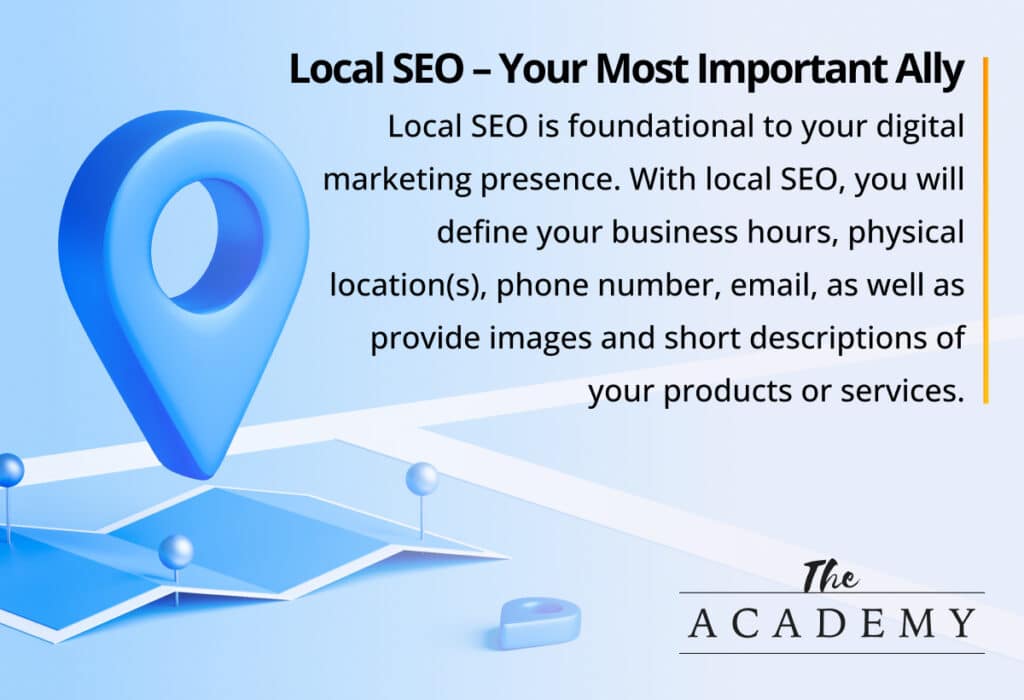
If a Super Bowl ad is the tip of our marketing iceberg, then at the very bottom, there is local SEO. Local SEO is foundational to your digital marketing presence as it informs not only search engines but your potential customers of who you are, what you do, and where you are located. With local SEO, you will define your business hours, physical location(s), phone number, email, as well as provide images and short descriptions of your products or services. This should be more than just information placed on your website, but integrated on your site as schema, which is a way of structuring your information on your site so that Google can easily identify it and use it when providing search results to potential customers.
Another way of implementing and improving your local SEO is by setting up and optimizing a Google Business Profile (GBP). Instead of relying solely on your website to provide your business information to Google, your GBP will streamline the process and offer even more ways to ensure that your business is being given its best opportunity to be shown higher in local search results. GBP will also provide you with helpful insights to practically improve your presence online and in search results, along with tools to monitor and track how your business is performing within searches.
Keyword Research 101
Even if keyword research can sound daunting, it isn’t that difficult when using specialized tools like Google Keyword Planner, Ubersuggest, or AnswerThePublic to help. And even with a little bit of time and effort, the ROI will be well worth it.
Keyword research is simply identifying specific keywords that people are searching for when they are looking for a product or service that your business is offering, and then using those keywords in meaningful ways on your website and digital marketing to grab the attention of those customers toward your business. For example, if you are selling pizzas, it would be obvious that you would want to include the word “pizza” across your site. But terms like “gluten-free,” “organic,” or “New York-style” might be other keywords that potential customers are searching for in your area. By including those keywords on your site and in your digital marketing plan, you will likely be shown more prominently in search results when someone searches for “great New York style gluten-free organic pizza near me.”
Pro tip: In general, a more specific keyword term will be more beneficial than a short one. So, for example, “pizza” is great for broad exposure, indicating that you are selling pizzas, but so is every other pizza restaurant nearby. What you are looking for are specific keywords that help you stand out from the competition. This means that keyword research may result in terms like “gluten-free pizza in Cleveland, Ohio.” This helps narrow down and specify some of your unique offerings that can potentially make your business more visible and stand out locally.
Now that you have done your research and you have all these great keywords, what do you do with them exactly? There are lots of ways that you can use these keywords, but to get the most out of them, you should consider putting them in strategic locations across your website. Google is always crawling your site, trying to determine what you’re offering so it can provide the best results to its users. With that in mind, placing your keywords in areas that Google is most interested in will result in the greatest results for SEO. Examples include:
- Page titles and meta descriptions
- Headings (H1, H2s)
- URLs (slug should be clean and relevant)
- Image alt text
Just be careful that you don’t overuse these keywords. What is appealing to Google is not always appealing to an actual visitor of your site. If your website is just a list of keywords without any actual, meaningful content, then you will most likely be causing more harm than good overall.
SEO: A World of Possibilities
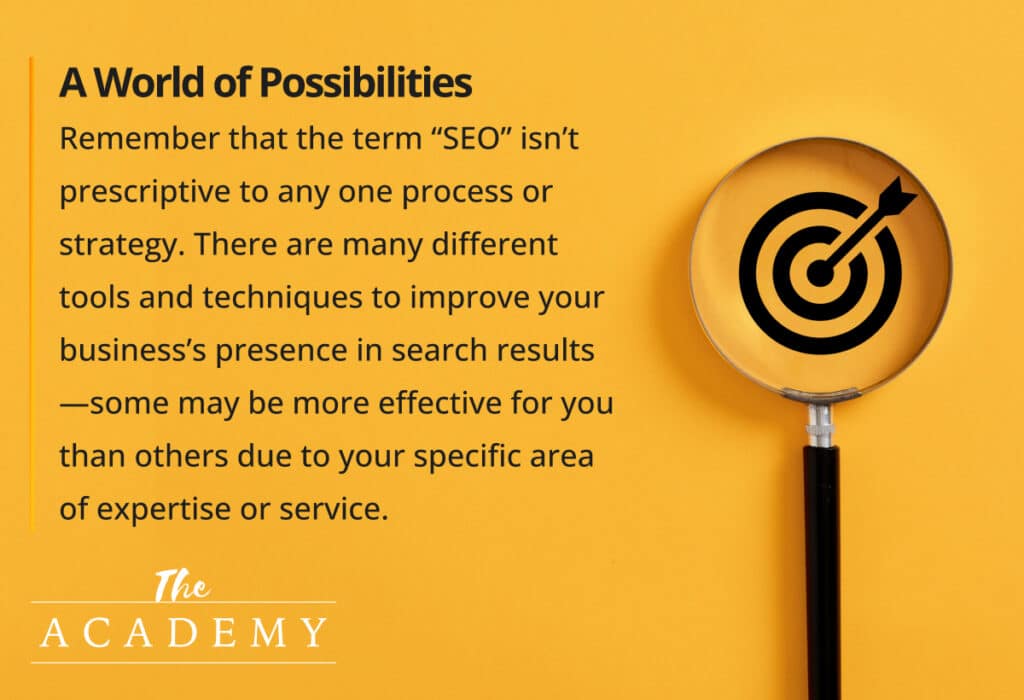
There are so many different ways that you can optimize your digital marketing strategies by incorporating SEO, and it is important to remember that the term “SEO” isn’t prescriptive to any one process or strategy. In other words, there are many different tools and techniques to improve your business’s presence in search results—some may be more effective for you than others due to your specific area of expertise or service. The important thing to remember is that it cannot be ignored if you desire growth in your business.
If you are struggling to be noticed online or don’t even know where to start with a digital marketing strategy, allow us to help you. At Sanctuary, we prioritize partnering with our clients to build and maintain a strong digital presence that returns results in measurable ways.
Most Popular Articles

Seeing Favicons in Your Google Search Results? Here’s Why…
Have you noticed anything different in your Google Search results lately? Google added tiny favicon icons to its organic search results in January. It was…

Business Growth and Digital Marketing News & Tips 11-17-24
Are you encouraging and rewarding innovation? Lee Cockerell is the former Executive Vice President of Operations at Walt Disney World. A lover of traditional red…

Business Growth and Digital Marketing News & Tips 11-27-24
A culture of gratitude "Feeling gratitude and not expressing it is like wrapping a present and not giving it." – William Arthur Ward Beyond being…

